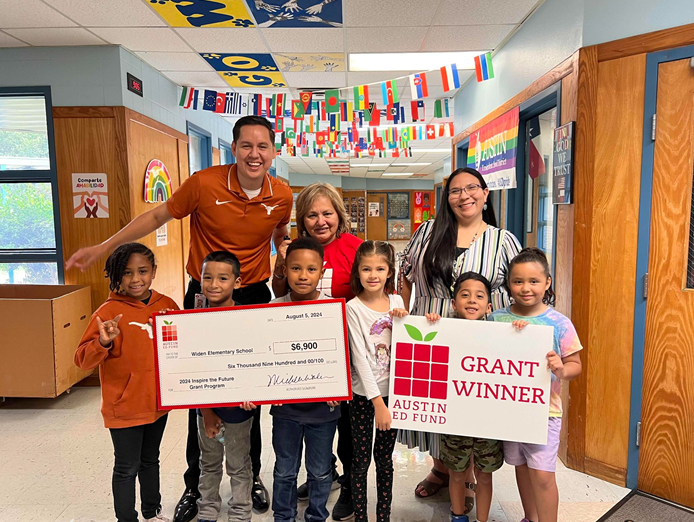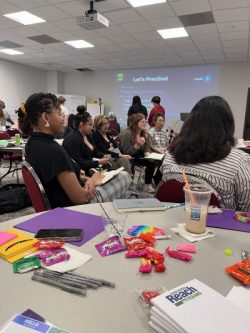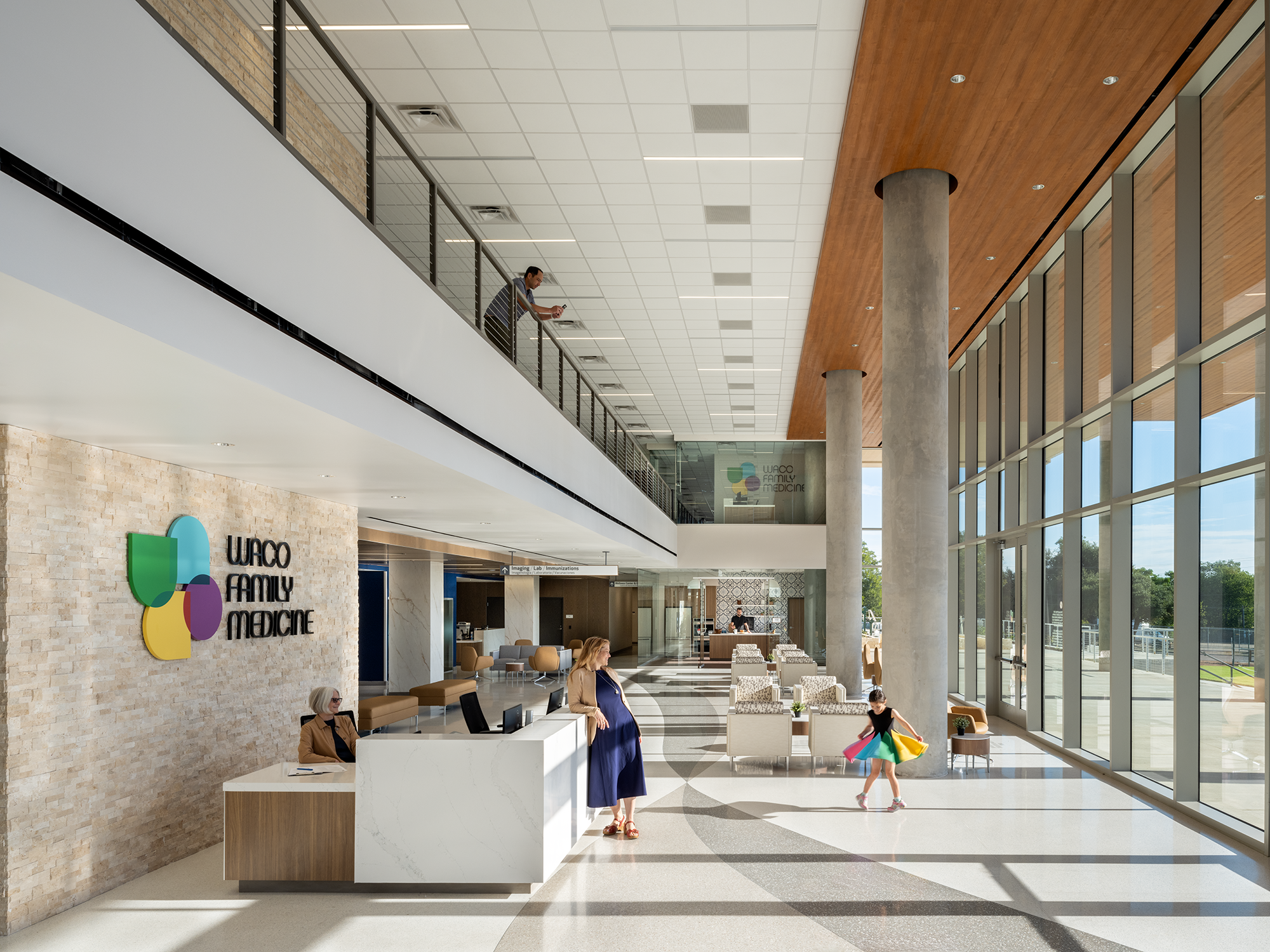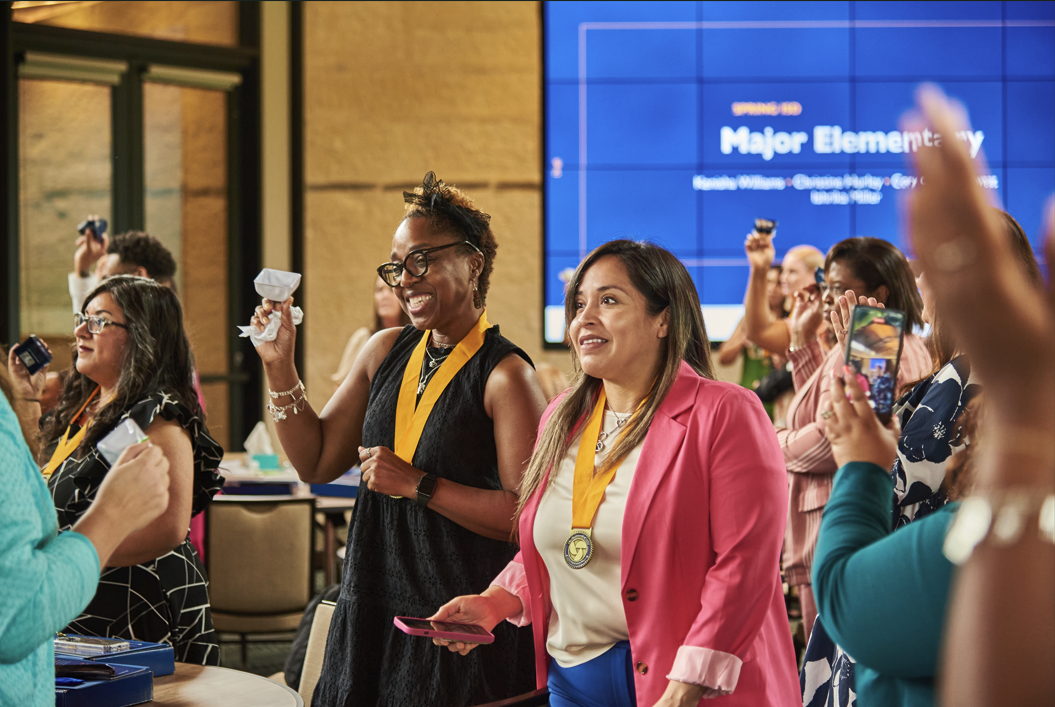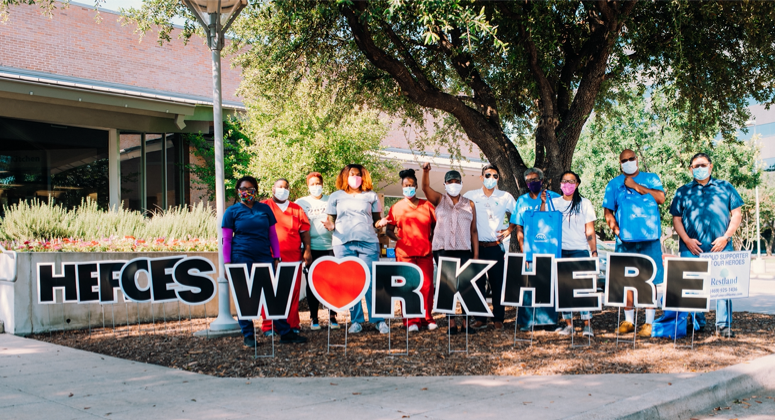
Reflecting on a Year of Resilience and Adaptation
2020 was unlike any other year. Despite the challenges and tremendous loss, local nonprofits have only shown more resilience and devotion to their communities. The Moody Foundation is inspired by stories of people coming together to support each other in the face of difficulty.
At the onset of the pandemic, many nonprofits quickly pivoted and made costly changes to safely deliver their services. In many cases, they saw multiple unforeseen operational expenses. With the economic crisis, these nonprofits also experienced a loss of donors, funds and access to resources. Without the necessary support, they wouldn’t have the means to address their critical needs.
Knowing this, the Moody Foundation promptly shifted 100% of its giving priority to funding COVID-19 relief grants and added more flexibility to existing grant requirements. Since March, we’ve distributed six rounds of COVID-19 relief grants, totaling over $15.8 million to local nonprofits in cities across Texas. We identified over 150 nonprofits needing immediate COVID-19 support in a wide range of areas, including PPE, telemedicine, digital divide, food insecurity, rent assistance and disaster relief.
We had a chance to check in with some of our grantees and hear their reflections on the past year, especially on how they adapted during the pandemic.
One of the biggest needs that has emerged is mental health services. Many frontline workers are putting in long and tiring hours. Parents are having to juggle working from home and essentially homeschooling their children at the same time. That all can take a toll mentally on someone. When the pandemic hit, Family Service Center (FSC) of Galveston County had to quickly go from in-person counseling sessions to telehealth visits.
“The Moody Foundation’s funding ensured FSC’s ability to purchase needed computer equipment so our team could work remotely, as well as secure needed virtual platforms to facilitate TeleMental Health services. The funding also ensured our ability to absorb funding losses due to reduced billing and client numbers, as well as operational support.” – FSC Executive Director Dr. Julie Purser and FSC Development Director Karen McWhorter
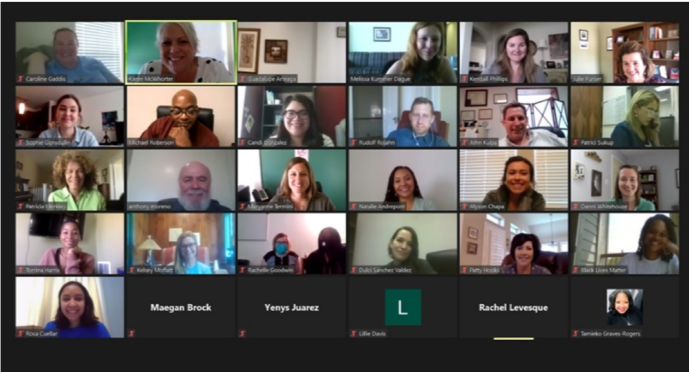
FSC Team Zoom meeting
With COVID-19’s impact on vulnerable elderly communities, many seniors are more isolated than ever without the previous social and economic support provided by family, friends and neighbors. However, Visiting Nurse Association of Texas (VNA) Meals on Wheels has been there ensuring they are fed and cared for during such uncertain times.
“The VNA began making virtual deliveries where clients are contacted via phone on non-delivery days, so we can see if they have any non-food needs. The Moody Foundation has helped us feed more than 4,600 seniors, purchase PPE for staff and volunteers, provide shelf-stable meals to clients, and purchase and administer flu shots to Meals on Wheels clients and residents in under-resourced communities.” – VNA Managing Director of Development and Communications Jennifer Atwood
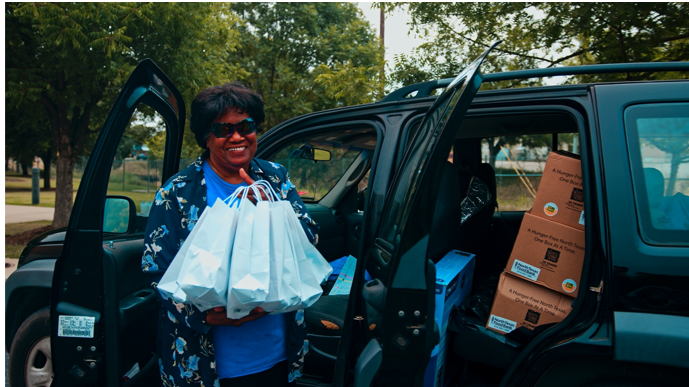
Delivery for VNA Meals on Wheels client
El Buen Samaritano (El Buen) has been building healthy, resilient communities for more than 30 years by ensuring access to healthcare, education and essential needs. Earlier this year, El Buen witnessed an astonishing increase in community needs. Before COVID-19, their pantry served around 100 families per week. Now, they are serving more than 700 families per week, surpassing in 2020 what they normally serve in three years.
“In just two days after the first confirmed cases, we activated our food pantry emergency response operations, pivoted to provide remote-online adult and youth education services, and secured resources to provide our community access to technology, internet and financial assistance. The Moody Foundation’s funds have allowed us to increase our capacity to provide access to food for thousands of individuals living in food deserts and disproportionately affected by COVID-19.” – El Buen CEO Dr. Rosamaria Murillo
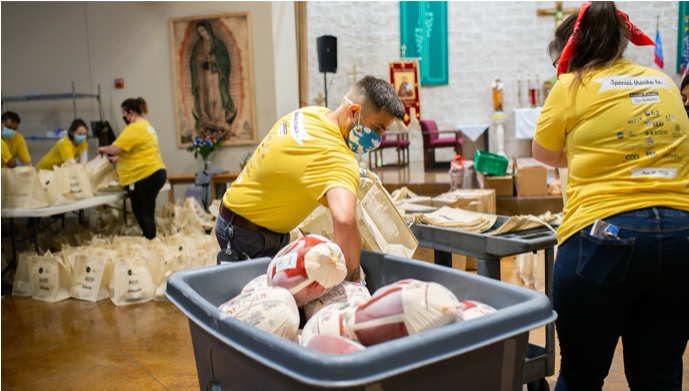
Preparing for annual El Buen Hands for Hope event
We’ve also seen how students have been impacted with the pivot to remote learning. Catch Up & Read (CAR) provides professional development for teachers and after-school tutoring for at-risk elementary students from grades 1-3. St. Philip’s School and Community Center (St. Philip’s) delivers inner city, private school education to 200+ students, grades Pre-K through 6th grade and works in collaboration with several community-based organizations to provide numerous free or low-cost services.
“We have broadened our teaching instruction to include how to deliver engaging reading instructions for in-person, virtual and hybrid classrooms. Normally, we start the after-school tutoring component in October. This year our CAR teachers have started off working with students within their homeroom classrooms. Now, we’re hoping to add virtual afterschool tutoring once we get principals’ go-ahead.” – CAR Director of Development Ashley Comstock
“In the wake of the COVID-19 outbreak, we had a sole focus on our core food insecurity and social service programs. The Moody Foundation’s support equipped St. Philip’s to be responsive and safe in its provision of the critical services needed by our students, families, and neighbors vulnerable to hunger and other challenges.” – St. Philip’s Philanthropy and Communications Departments
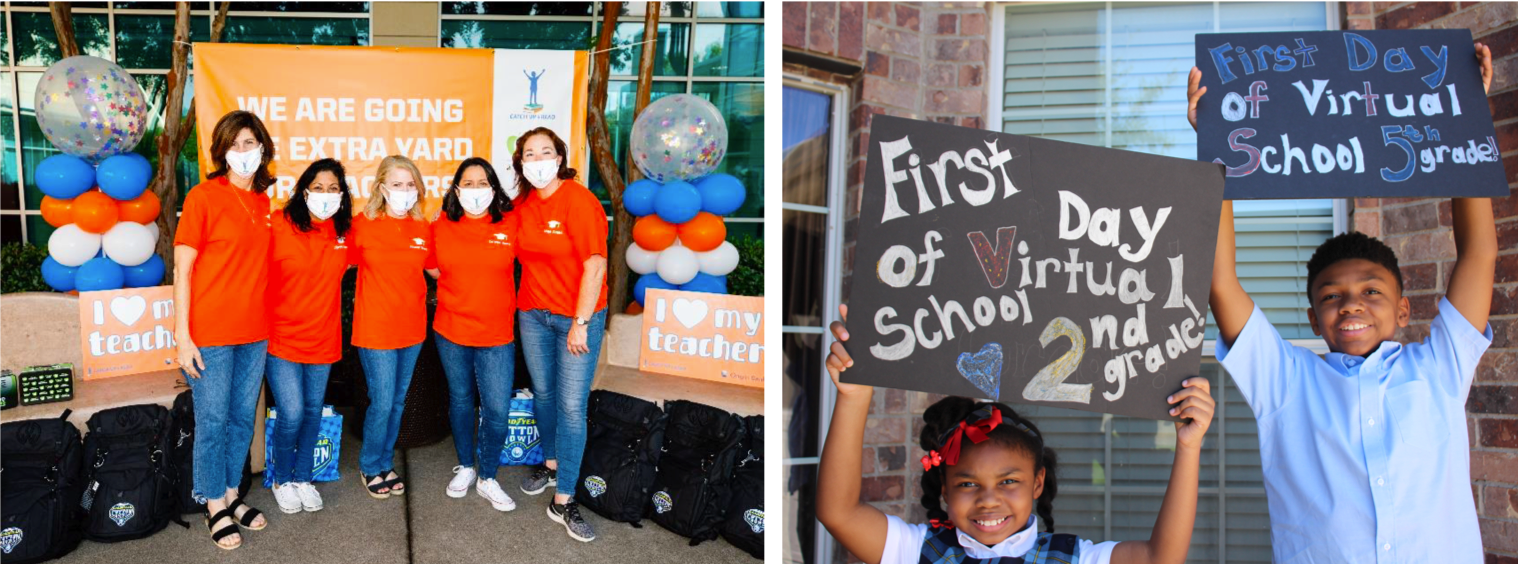
Remote learning for CAR and St. Philip’s teachers and students
In February, the Abilene Youth Sports Authority (AYSA) held a grand opening for its new facility. Unfortunately, a month later, they were forced to close their doors for 12 weeks due to COVID-19. Through it all, they altered in-person activities to online, providing fitness, basketball and volleyball Zoom workouts, parent and student digital workshops and Instagram challenges to keep the youth active mentally and physically.
“Once doors were allowed to reopen, we continued our efforts in serving our community by hosting eight volleyball and basketball camps, four volleyball and basketball clinics, three volleyball and basketball tournaments, and two volleyball and basketball youth leagues. We are so thankful for the Moody Foundation on assisting us with our operational expenses and their willingness to serve our team and West Texas.” – AYSA Executive Director Brandon Osborne
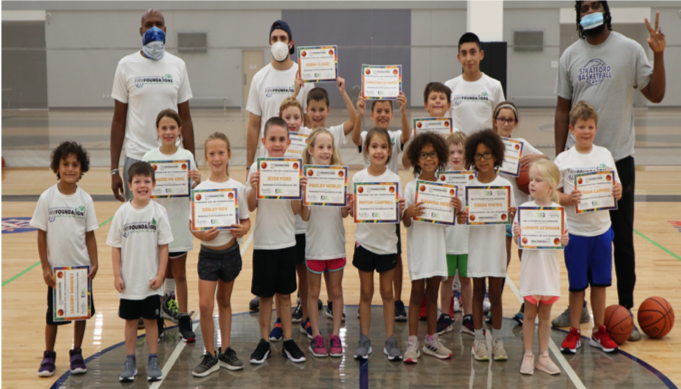
AYSA students after basketball camp
Today, COVID-19 remains a reality and the negative impacts to our community and charitable organizations will be long-lasting. We don’t know what tomorrow will bring, but what we do know is we’ll continue answering the call to help Texans.
Check out our other blogs on how Texas food banks and school districts responded to COVID-19. Read more of our grantees’ stories in 2021 here.
